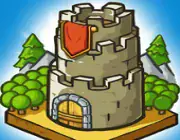### Design Diary: Match 3 Games
Welcome to our Design Diary, where we take you behind the scenes of creating a captivating Match 3 game! The Match 3 genre has gained immense popularity over the years, captivating players with its engaging mechanics and colorful visuals. In this entry, we’ll explore the intricacies of designing a Match 3 game, from concept development to level design, and the elements that make these games addictive and fun.
#### Conceptualization
The journey begins with a clear concept. What makes your Match 3 game unique? The first step is brainstorming ideas for themes and settings. Whether it’s a fantastical world filled with gems, a garden blooming with flowers, or even a space adventure collecting alien artifacts, the theme sets the tone for the entire game. It’s crucial to develop a narrative that connects players to the gameplay, giving them a reason to progress through the levels.
#### Game Mechanics
At the heart of every Match 3 game lies its core mechanics. The classic formula involves swapping adjacent items to create matches of three or more. However, to stand out in a crowded market, it’s essential to innovate and introduce new mechanics. Think about special tiles, power-ups, or obstacles that can challenge players in fresh ways.
For instance, you might introduce bomb tiles that explode upon matching, clearing out surrounding tiles and adding more excitement to the gameplay. Or perhaps implement cascading effects, where matching tiles cause a chain reaction that can lead to more matches being created. Incorporating these elements not only enhances gameplay but keeps players engaged as they strategize their moves.
#### Level Design
Once the mechanics are established, the next step is creating diverse levels. This stage is where creativity truly shines. Each level should provide a unique challenge, incorporating various objectives and difficulty levels that escalate as the player progresses. The design should ensure there’s a balance between making the levels challenging yet rewarding.
Consider implementing different types of objectives, such as collecting specific items, reaching a certain score within a time limit, or clearing a designated number of tiles. It’s essential to create a sense of progression and achievement. Failing a level can often lead to frustration, so offering hints or ways to retry with a slight advantage can help retain the player’s interest.
#### Aesthetics and Audio
Visual and audio elements play a critical role in the Match 3 experience. The color palette, character designs, and backgrounds should align with the theme to create an immersive environment. Bright, vibrant colors typically attract players, drawing them into the game’s world, while smooth animations enhance the overall feel during gameplay.
Moreover, sound effects and music are vital. Catchy melodies and satisfying sounds when matching tiles or triggering power-ups can significantly elevate the experience and keep players returning. Ensuring that the audio complements the visual aesthetic will enhance the engagement factor of your game.
#### Monetization Strategy
In today’s gaming landscape, having a solid monetization strategy is essential. Match 3 games often employ various models, including in-app purchases and ads. Offering cosmetic items, power-ups, or additional lives can provide players with the option to enhance their experience without disrupting gameplay. Striking a balance between monetization and user experience is key; players should feel they are rewarded for their time and effort, not just their money.
#### Testing and Feedback
Finally, testing and gathering player feedback is crucial in refining the game. Playtesting can reveal potential issues, such as levels that are too easy or too hard, and provide insights on whether the mechanics are enjoyable. Embrace constructive criticism, as it can lead to important improvements that enhance the overall gameplay experience.
### Conclusion
Creating a Match 3 game is a rewarding endeavor that combines creativity, strategy, and player engagement. By focusing on unique concepts, innovative mechanics, diverse level design, appealing aesthetics, and player feedback, developers can craft an experience that resonates with players globally. Stay tuned for more insights and updates in our Design Diary as we continue our journey through the world of game design!
For more resources on game design, check out sites like
Gamasutra or
Game Developer.

 Castle
Castle
 Decorate
Decorate
 Decoration
Decoration